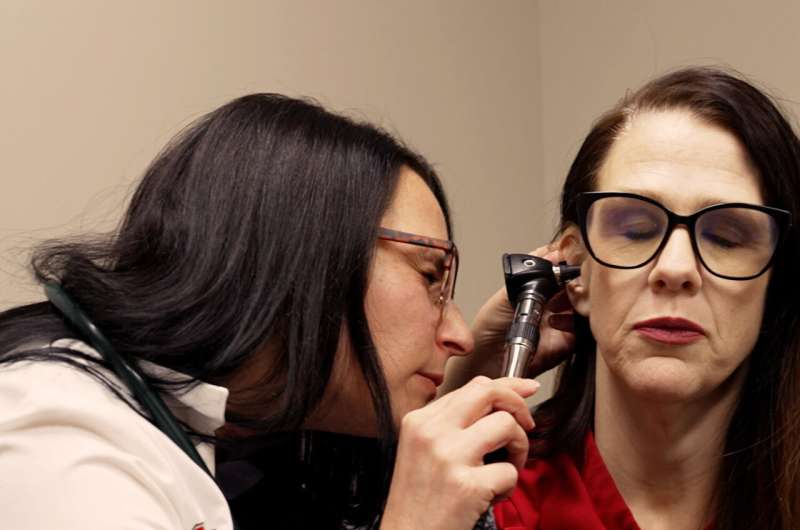This article has been reviewed according to Science X's editorial process and policies. Editors have highlighted the following attributes while ensuring the content's credibility:
fact-checked
trusted source
proofread
Beyond BMI, researcher says complete approach to measuring health is better

For decades, the number on a scale has been a key factor in deciding whether a person is healthy or not. But weight alone doesn't paint a complete picture of one's health.
People have used body mass index (BMI) to measure body fat based on height and weight since the 19th century. According to the American Medical Association (AMA), BMI is not an ideal way to do this because it doesn't account for differences in age, gender, race/ethnic group, body shape, genetics and percentage of muscle and body fat.
"It's not a perfect measure because it's only an assessment of your mass for your height, and there are other factors including genetics that play into your overall health," said Barbara Bawer, MD, family medicine physician and clinical assistant professor of family and community medicine at The Ohio State University College of Medicine. "A person can have a normal BMI but not be healthy and a person can have a higher BMI and actually be generally healthy otherwise."
Instead, Bawer recommends taking a thorough look at health by focusing on the B.A.S.I.C.S. Following the checklist can help prevent illness and highlight health issues early.
Brain: How strong is your cognitive health? Do you have trouble remembering appointments or important dates? Do you frequently misplace things? Has your SAGE test score, a self-administered test that can spot early signs of dementia, changed in the past year?
Activity: How active are you? Do you complete 150 minutes of moderate exercise each week? Do you experience any pain when exercising? Do you sit for more than eight hours per day?
Stomach: How healthy is your digestive system? Do you have indigestion, stomach pain or bloating? Are your bowel movements regular? Is there blood in your stool? Have you experienced unexplained weight gain or loss?
Immunity: Do you get sick often or get frequent infections? Does it take you longer than others to recover from illness? Have you had recommended vaccinations?
Checkups: Have you completed an annual checkup with your primary care physician? Do you have any health concerns? Are you up to date on all recommended screenings?
Sleep: Do you get seven to nine hours of sleep each night? Are you tired during the day? Do you often need a nap to get through the day?
Bawer suggests completing the B.A.S.I.C.S. checklist monthly to identify any changes in health. Make an appointment with your doctor to discuss any red flags.
"If you let small issues go or think, 'Oh, it's just nothing,' they tend to foster into bigger issues over time," Bawer said. "Whereas, if you bring it up to your primary care doctor, we can hopefully catch it early, potentially prevent complications from happening and treat it right away."




















